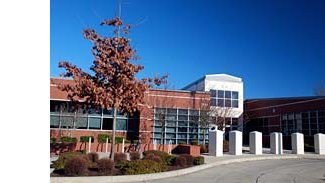
Yesterday we talked about an earthquake off the coast of Oregon, and today we see that FEMA Region 7 is giving good advice on how to prepare for an earthquake, and what to do when one happens.
FEMA Region 7 is in the midwest where earthquakes rarely occur, yet they still urge preparedness because earthquake DO happen!
Before an earthquake occurs:
- Consider purchasing earthquake insurance.
- Buy a 20-gallon garbage can and fill it with emergency supplies.
- Consider retrofitting your home to make it more resistant to earthquake damage.
- Educate your children about earthquake safety.
- Anchor heavy furniture, shelves, cupboards and appliances to the walls or floor.
- Store dangerous chemicals such as flammable liquids and poisons in a secure place.
- Learn how to shut off the gas, electricity and water.
- Have money in savings for post-catastrophic expenses that aren’t covered by your earthquake insurance policy. These expenses may include higher insurance deductible and repair or replacement claims that exceed your policy limits.
When an earthquake hits, what to do if you’re indoors:
- DROP to the ground;
- Take COVER by getting under a sturdy table or other piece of furniture; and
- HOLD ON until the shaking stops. Cover your face and head with your arms and crouch in an inside corner of the building.
- Stay away from glass, windows, outside doors and walls, and anything that could fall
- Stay in bed if you are there when the earthquake strikes. Hold on and protect your head with a pillow, unless you are under a heavy light fixture that could fall. In that case, move to the nearest safe place.
- Stay inside until shaking stops and it is safe to go outside. Research has shown that most injuries occur when people inside buildings attempt to move to a different location inside the building or try to leave.
- Be aware that the electricity may go out or the sprinkler systems or fire alarms may turn on.
When an earthquake hits, what to do if you’re outdoors:
- Stay there. Drop, Cover and Hold.
- Move away from buildings, streetlights, and utility wires.
- Once in the open, stay there until the shaking stops. The greatest danger exists directly outside buildings, at exits, and alongside exterior walls. Ground movement during an earthquake is seldom the direct cause of death or injury. Most earthquake-related casualties result from collapsing walls, flying glass, and falling objects.
To see the whole message, go to http://www.fema.gov/news/newsrelease.fema?id=50396 and visit http://www.fema.gov/hazard/earthquake/







No comments:
Post a Comment